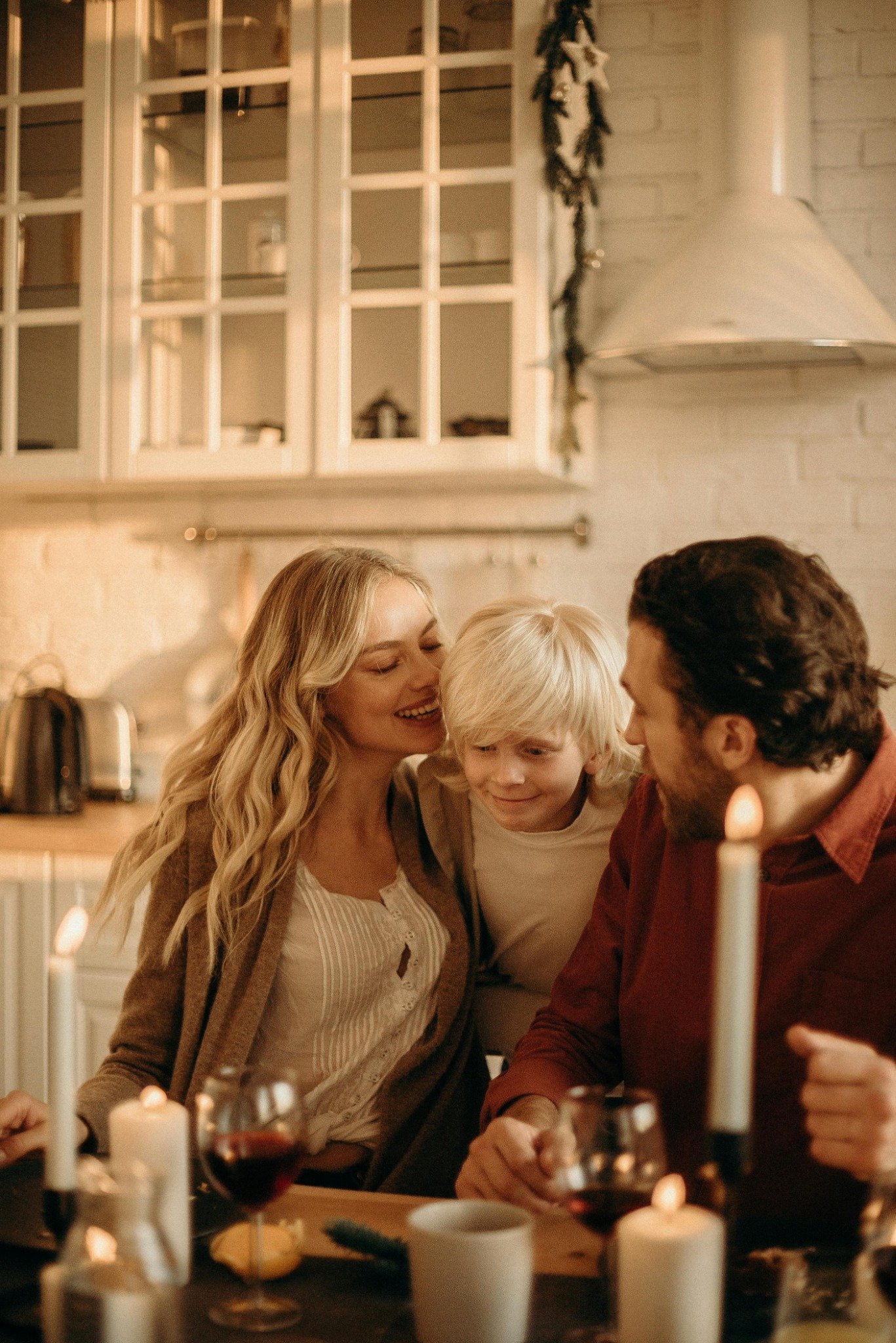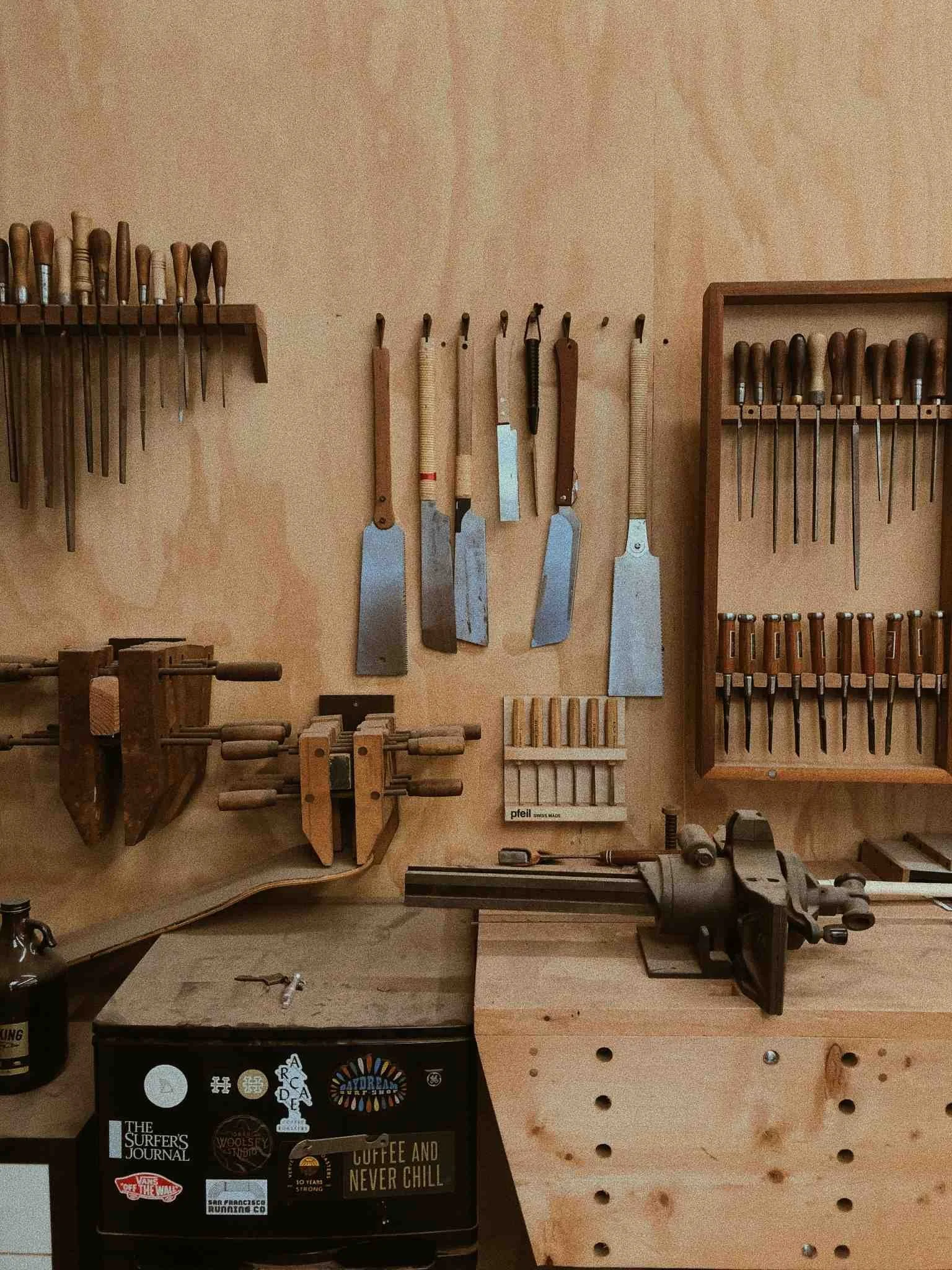8 Frugality Lessons from 'Your Money or Your Life'
Photo by Joshua Earle on Unsplash.
Reading time: 7 minutes
Unlocking Financial Freedom Through Frugality: Key Insights from Vicky Robin’s 'Your Money or Your Life'
In today’s post, we’ll explore 8 powerful insights on frugality from Vicky Robin's book ‘Your Money or Your Life’, and how these insights can lead you toward achieving financial independence. In previous posts, we discussed how redefining our relationship with work is essential for crafting a meaningful life and achieving financial freedom as outlined in ‘Your Money or Your Life’. Vicky Robin’s book certainly deserves its reputation—it’s filled with transformative ideas that will change the way you think about money, work, and life.
Material Expectations Are Outpacing Income Growth
Today, many workers are unhappy with their jobs, as global stress levels hit record highs, with 77% of employees feeling dissatisfied. This is surprising when we pause to reflect on the enormous leaps we have collectively unlocked in productivity, economic growth, and technological progress over the last decades and century. In light of this progress, shouldn’t we be working less and relaxing more? What is the point of all these improvements if it doesn’t allow us to live better lives?
A partial answer to this paradox may lie in the changes in consumption we’ve experienced over time. Although we are wealthier than previous generations, our material expectations have skyrocketed, creating a gap between what we earn and what we desire.This widening gap is a classic driver of lifestyle inflation, quietly stretching FI timelines for many households.
Take for instance the average size of a new house in the US, which has doubled since the 1960s. Consider the millions of items available for purchase with just one click, items that our grandparents likely never imagined.
How Frugality Can Buy Your Financial Freedom and Fulfillment
If our material expectations are indeed outpacing income growth, embracing frugality may be the key to finding financial stability and contentment.
Today, we explore Vicky Robin's transformative insights on frugality from her book “Your Money or Your Life.” Robin emphasizes that frugality is the cornerstone of regaining financial freedom—whether your goal is LeanFIRE or FatFIRE—and designing a life filled with meaning and fulfillment.
Order ‘Your Money or Your Life’ now and start your journey towards redefining your relationship to work, embracing frugality, and carving your path towards achieving financial independence (affiliate link).
*Affiliate link: If you enjoy our content, consider purchasing your book through our link. We earn a small commission, which helps support the blog. In addition, 10% of all revenue generated is donated to charitable causes.
8 Powerful Lessons on Frugality from 'Your Money or Your Life'
1) Breaking Free from the Rat Race: Overcoming the Cycle of Work and Consumption
As a result of increasing material expectations, many people find themselves trapped in the rat race, spending more than they have on things they don't really need—like the hidden costs of car ownership for many households—driving them back to work to earn more money to spend on more stuff, perpetuating an endless cycle of consumption. Unfortunately, beyond a certain level of comfort, money alone is unlikely to buy us the happiness we seek. Focusing on material experiences may bring short-lived moments of pleasure, but it will always fail to provide lasting fulfillment.
“More is better” is a formula for dissatisfaction. The rat race creates a stressful balance between working harder to afford luxuries and finding leisure time to enjoy them. The internet exacerbates this problem, making us perpetual consumers constantly bombarded by advertisements. We are constantly bombarded with advertisements, and the desire to buy is easier to fulfill than ever. According to Vicky Robin, the relentless pursuit of material possessions detracts from our well-being, leaving us in a perpetual state of dissatisfaction and yearning for a simpler, more meaningful existence. If you live for having it all, what you have is never enough.
We are slowly sacrificing our time and our lives for money, often without realizing it, at the expense of our personal interests, family, and leisure. Even those who truly enjoy their job feel there could be more to life than the 9-to-5 grind, that they may be missing out on other important dimensions life has to offer.
* Further Reading – Article continues below *
2) Why Frugality Offers Good Value for Your Life Energy and Happiness
When we explore the etymology of frugality, we realize that frugal shares a Latin root with frug (meaning “virtue”), frux (“fruit” or “value”) and frui (“to enjoy or have the use of”). Frugality can be interpreted as enjoying the virtue of getting good value for every minute of your life energy and from everything you have the use of.
In light of this definition, your success at being frugal is not determined by your money-pinching abilities, but by your degree of enjoyment of the material world. In this sense, waste doesn’t lie in the number of possessions we have but in our failure to enjoy them. Frugal individuals maintain a high joy-to-stuff ratio, finding enjoyment in using rather than owning things.
3) How Frugality Encourages Wise Stewardship of Resources Beyond Material Possessions
Frugality reshapes how we view money, time, energy, space, and possessions, promoting wise stewardship of resources. We spend money more intentionally prioritizing purchases that truly bring us joy and value. We acknowledge that time is a finite resource—our most previous one—and focus on activities and experiences that will provide us with genuine fulfillment. We invest our energy only in activities and relationships that are rewarding us and that are uplifting. We declutter and organize our living environment to create a sense of peace and order, making space for creativity and activities that enhance our well-being. Finally, we value quality over quantity—we own fewer items, and ensure these are functional, meaningful, and contribute positively to our lives.
These choices reflect a desire to live more intentionally, often leading to a simpler, more content lifestyle and creating space for more meaningful pursuits.
4) Maximize Happiness with Frugality: Efficient Strategies for Joyful Living
Frugality is about maximizing happiness with what you have. Instead of accumulating more things, frugality emphasizes spending time and money on what genuinely makes you happy. This means prioritizing experiences, relationships, and personal growth over collecting more gadgets. Focus on what really matters and question what will bring you long-term happiness and peace of mind, not just temporary pleasure.
Vicki Robin's Fulfillment Curve illustrates how spending relates to satisfaction, showing that beyond a certain point, more spending brings diminishing returns. Initially, happiness increases with spending, but after a certain point, more spending brings diminishing returns or even dissatisfaction. Our goal, therefore, is to strive to reach the top of the inverted-U fulfillment curve, to that level of comfort that is “enough”.
5) Exploring the Ethical Dimension of Frugality: Sustainable and Responsible Living
Frugality encompasses more than saving money; it represents an ethical commitment to responsible consumption and environmental sustainability. Choosing to consume less and use resources more intentionally, frugality allows individuals to align their spending habits with a more sustainable world—by choosing to consume less today, we reduce our ecological footprint and reduce the ecological debt that future generations will pay to sustain the lifestyles of today’s generations. Frugality is also about making conscious decisions to minimize waste in our daily lives. This can include reusing items, repairing instead of replacing, and recycling whenever possible.
Photo by Artem Sapegin on Unsplash.
6) Frugality Builds Community: Resource Sharing and Collaboration
Frugality fosters community by promoting resource sharing and collaboration, strengthening social bonds and support networks. We don’t try going immediately for the quick solution—buying ourselves out of a problem—but think, first, whether there is a smarter solution that may involve others. This can lead to stronger social bonds and a greater sense of belonging. Generally, people are wired to want to help—the limitation is normally enough courage to ask for it. By focusing on relationships and community, frugality enhances social well-being and supports a more interconnected and supportive society.
7) Simplify Your Life and Reduce Stress with Frugality: A Path to Peace
Embracing frugality removes the pressure to keep up with societal expectation of consumption. Trying to impress others is a waste of time and money; others are likely so busy trying to impress someone else that they will, at best, fail to notice your efforts. At worst, they will resent you for one-upping them.
Reducing our need for external validation fosters a huge sense of inner peace and allows us mental space to pursue personal growth, while refusing to mindlessly follow consumer trends or societal pressures can lead to a higher degree of financial stability and to reduced levels of stress. In practice, this means actively resisting lifestyle creep, which can otherwise undo years of frugal progress.
Indeed, being frugal is one of the easiest paths to increasing your savings rate and carving your path towards achieving financial independence, regardless of whether you’re aiming for LeanFIRE or FatFIRE. And by consistently living below your means, you’re not just saving money—you’re creating a buffer that makes you less fragile to life’s shocks and more able to take advantage of unexpected opportunities. We explore this mindset shift toward thriving in uncertainty in our separate post on.
8) How Frugality Reflects Self-Esteem: Embrace Your Values and Life Energy
Ultimately, frugality is an expression of self-esteem, because it involves making intentional choices that honor your values and the time you've invested to earn money. By practicing mindful consumptions and keeping unnecessary purchases in check, you are being respectful of those precious minutes and hours of life energy that you spend daily in your jobs. Frugality also means spending in ways that align with your values, showing that you prioritize what is important to you rather than succumbing to societal pressures. It allows you to define success on your own terms, focusing on personal fulfillment rather than material wealth.
Enjoyed this post? Don’t miss our post on Vicky Robin’s 9 key lessons on money and work or our post on 8 longevity lessons from Netflix’s latest Blue Zones show.
🌿 Thanks for reading The Good Life Journey. I share weekly insights on money, purpose, and health, to help you build a life that compounds meaning over time. If this resonates, join readers from over 100 countries and subscribe to access our free FI tools and newsletter.
👉 New to Financial Independence? Check out our Start Here guide—the best place to begin your FI journey.
Disclaimer: I’m not a financial adviser, and this is not financial advice. The posts on this website are for informational purposes only; please consult a qualified adviser for personalized advice.
*Affiliate link.
About the author:
Written by David, a former academic scientist with a PhD and over a decade of experience in data analysis, modeling, and market-based financial systems, including work related to carbon markets. I apply a research-driven, evidence-based approach to personal finance and FIRE, focusing on long-term investing, retirement planning, and financial decision-making under uncertainty.
This site documents my own journey toward financial independence, with related topics like work, health, and philosophy explored through a financial independence lens, as they influence saving, investing, and retirement planning decisions.
Check out other recent articles
Join readers from more than 100 countries, subscribe below!
Didn't Find What You Were After? Try Searching Here For Other Topics Or Articles:
































